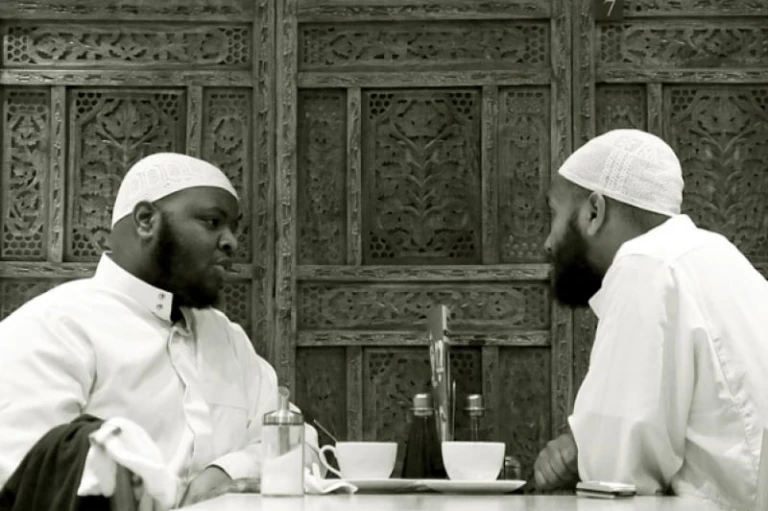HalalZilla consults the great archives of football to handpick our top Muslim players who’ve ever laced a pair of boots in the big leagues – especially those you didn’t know were Muslim!
Toxic Masculinity And How Islam Offers A Solution

What is Toxic Masculinity?
The term toxic masculinity is best and easily understood in terms of emotional repression, self-reliance and a restatement of traditional stereotypes on men. This socially constructed expectation of masculinity includes archaic notions that men are inherently obliged to repress their emotions, devaluation of women and anything feminine within other men and the like. In many Muslim cultures, often the idea of being a “real” man is acquainted to someone who is emotionally repressive because that is deemed as having strength.
Islam as Guidance
 Image credit: Keno Photography
Image credit: Keno PhotographyWhen you look at the Qu’ran and the Sunnah, the idea of a real man can best be seen in Prophet Muhammad (PBUH). We often see him as a man who is constantly in touch with his own emotions. For instance, at a time when he is facing a difficult moment in his journey to Allah, he often sought emotional support and guidance by turning to his wife – and transforming his vulnerability into strength.
The Importance of Male Vulnerability & Emotions
 Image credit: Jarek Jarosz
Image credit: Jarek JaroszEmotions is what makes us human, for as long as we consider the expression of emotion as weakness, it is difficult to be your authentic self. As succinctly highlighted by Dr. Omar Shareef, a New York psychiatric resident in a recent talk, “learning to acknowledge and express emotions, by using examples like the Prophet (PBUH), is the key to healthy masculinity”.
Emotional intelligence is more than just handling interpersonal relationships and empathizing others. It is being kind to yourself and giving yourself a channel to express your feelings healthily in order to stay in touch with your soul.
As we navigate our way through the difficulties in our lives and in the world every day, allow emotional space to yourself. Everyone carries within themselves weaknesses, pain and trauma and without a medium to release it, the difficulties will continue to mountain. Open your heart and let yourself breathe easily; after all, we should take the lead from our sunnah and how our PBUH navigated the tribulations in his life.
Published at
About Author
Natasha Shadeanna
Subscribe our Newsletter
Get our weekly tips and travel news!
Recommended Articles
10 Muslim Footballers That Will Inspire You And Your Goals 12 Culture Shocks You’ll Experience During Umrah Welcome to the land of blessings & calmness ~
2019 Emirates FA Cup Final Winners Will Celebrate With Non-Alcoholic Champagne Regardless of the team you support, it’s heartening to know that the winners will be offered non-alcoholic champagne to cater to those who don’t drink.
2025 Japan Fireworks Festival Guide: Dates, Locations & Muslim-Friendly Tips It's hanabi taikai season ~~
4 Hijab-Friendly Spas in Singapore For Your Raya Glow Up Do you want to look your best this Hari Raya? These hijab-friendly spas in Singapore will not only pamper you but also make sure you are #RayaReady.
Latest Articles
10 Most Stunning Camping Spots in Yogyakarta, From Mountain Peaks to Riversides for Muslim Adventurers Level up your adventure!
10 Nature-Themed Cafes in Batu, Malang for A Halal-Friendly and Soul-Soothing Escape Escape to nature!
10 Best Hotels in PIK Jakarta for a Fun Family Staycation: Strategic & Stylish perfect destination for a quick weekend escape or a fun-filled family staycation
No Flight Needed! 9 Jakarta Hotels That Give You Major Bali Vibes Jakartahides some secret "oases" that can make you feel like Bali
17 Stunning Filming Locations of "Can This Love Be Translated?": From Japan to Canada not just the romance that’s stealing the spotlight—it's the breathtaking scenery

